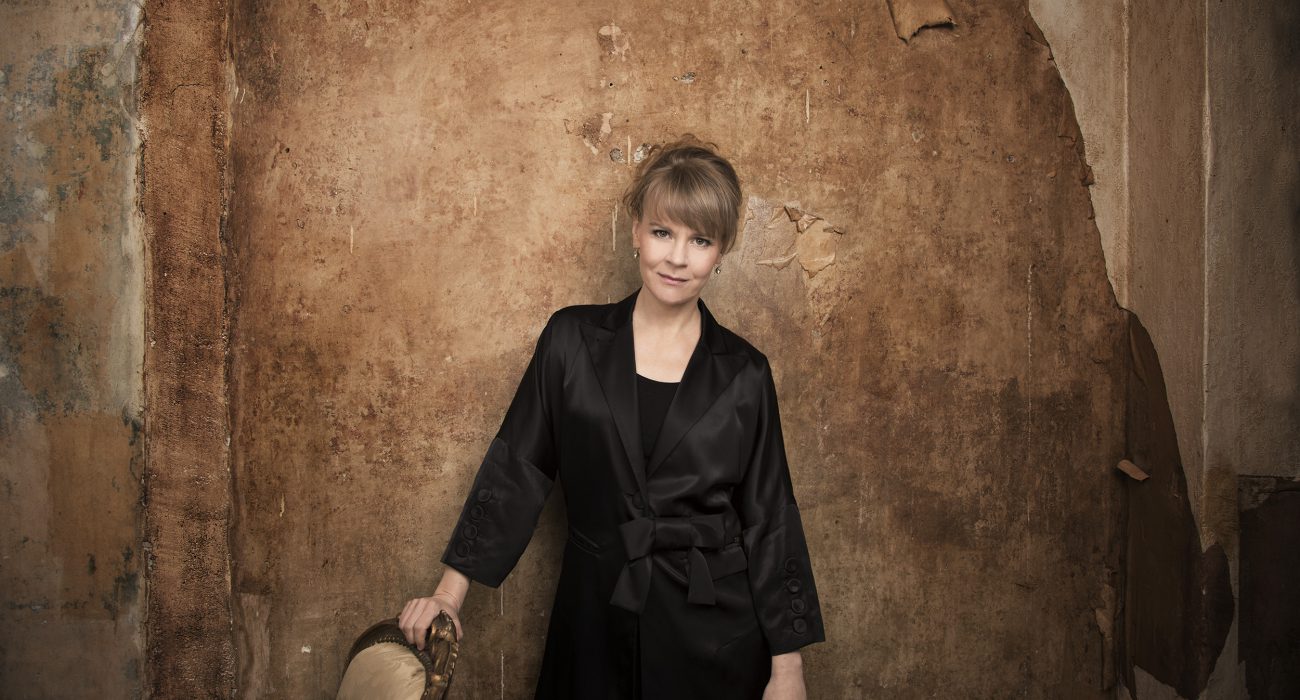Finnish star-conductor Susanna Mälkki in a Cercle Diplomatique exclusive interview about her debut at the Vienna State Opera, the composer Gottfried von Einem and the orchestra as a polyphonic instrument.
You make your debut at the Vienna State Opera in March 2018 with the premiere of „Dantons Tod“ – is Gottfried von Einem’s contemporary opera a particularly challenging entry on the Viennese stage?
I think it’s very exciting, actually. The Büchner play, which the opera is based on, is touching on many subjects which are related even to the people and the societies of today’s world, and I find it fascinating how von Einem is able to include a lot in his musical language, which is stylistically both modern and classical. „Dantons Tod“ is not radical avant-garde (which could be more challenging for the public), but definitely very intelligently written and has many very powerful moments. I believe that opera is at its best when it tells important stories, and this one does it very well.
Contemporary opera is a rare exception on the repertoire of most opera houses- should the opera in your opinion, as a specialist for contemporary music, be more current?
I think opera is the best artform imaginable to connect different époques, and therefore being current or up-to-date does not depend solely on the date of the musical composition. Much is being talked about theatre and film influences in opera staging, opera is changing visually as well. I think the only real danger is not to study and perform the work with a contemporary mind, since we are doing it for modern audiences – but this does not need to mean not respecting the tradition!
Next to Simone Young and Speranza Scappucci, you are now the third female conductor on the podium of the Vienna State Opera. Are women at the podium still a controversial topic in the world of classical music?
It may still be new in some people’s minds, but I wouldn’t say it’s controversial. I’m happy that things are changing now even in the classical music business. Personally, I always find the work at hand more important than the person performing it.
Your original musical love is the cello, you were one of the principals of the Gothenburg Symphony Orchestra for several years. What made you change to the conductor’s desk?
For me the best musical sound world, or actually the best instrument, has always been the sound of an orchestra. I loved playing in orchestra and being part of that sound. What drew me into conducting is the richness of the scores, the polyphony, the architecture of sound and time, and I noticed that my way of thinking of music suited very well to all that and the process of preparation of a big piece of music. The change was finally very natural, conducting simply took over. I never really had to make the choice, it was made for me in form of opportunities, and I was willing to follow the path.
[Deutsch]
Sie geben im März mit der Premiere von “Dantons Tod” Ihr Debüt an der WienerStaatsoper – ist die zeitgenössische Oper von Gottfried von Einem ein besonders herausfordernderEinstieg auf dem Wiener Parkett?
Es ist wirklich sehr aufregend, denke ich. Das Büchner Stück, auf dem die Oper basiert, berührt viele Themen, die sich auch auf die Menschen und Gesellschaftender heutigen Zeit beziehen, und ich finde es faszinierend, wie von Einem vieles in seine musikalische Sprache einbeziehenkann, was stilistisch sowohl modern als auch klassisch ist. Dantons Tod” ist keine radikale Avantgarde (was für das Publikum vielleicht herausfordernder wäre), aber definitiv sehr intelligent geschrieben und hat viele sehr beeindruckende Momente. Ich glaube, dass eine Oper am besten ist, wenn sie wichtige Geschichten erzählt, und in diesem Fall trifft es eindeutigzu.
Zeitgenössisches Musiktheaterist eine rare Ausnahme am Spielplan der meisten Opernhäuser – solltedie Oper gegenwärtiger sein?
Meiner Meinung nach ist die Oper die beste Kunstform, um verschiedene Epochen miteinanderzu verbinden, und deshalb hängt es nicht allein vom Zeitpunkt der musikalischen Komposition ab, um modern oder aktuell zu sein. In der Operninszenierung wird viel über Theater- und Filmeinflüsse gesprochen, die Oper verändert sich auch optisch. Ich denke, dass die einzige wirkliche Gefahr darin besteht, das Werk nicht mit einer zeitgenössischen Einstellungeinzustudieren und aufzuführen,da wir es ja für ein modernes Publikum tun – aber das bedeutet nicht, dass wir die Tradition nicht respektieren!
Neben Simone Young und Speranza Scappucci sind Sie nun die dritte Dirigentin am Pult der WienerStaatsoper. Sind Frauen am Pult noch immer ein kontroversielles Thema in der Klassikwelt?
Es mag zwar in manchen Köpfen noch neu sein, aber ich würde nicht sagen, dass es umstritten ist. Ich bin froh, dass sich die Dinge jetzt auch im klassischen Musikgeschäft ändern. Persönlich finde ich das vorliegende Werk immer wichtiger als
die ausführende Person.
Ihre ursprüngliche musikalische Liebe war das Cello, Sie waren vier Jahre Solo-Cellistinbei den Göteborger Symphonikern. Was hat Sie dazu bewogen, aufs Dirigentenpult zu wechseln?
Für mich war die beste musikalische Klangwelt, oder eigentlich das beste Instrument, immer der Klang eines Orchesters. Ich liebte es, im Orchester zu spielen und Teil dieser Klangwelt zu sein. Was mich zum Dirigieren brachte war der Reichtum der Partituren, die Polyphonie, die Architektur von Klang und Zeit, und ich bemerkte, dass meine Art zu denken sehr gut zu all dem und dem Prozess der Vorbereitungeines großen Musikstückes
passte. Der Wechsel war schließlich sehr natürlich, das Dirigieren nahm einfach überhand. Ich musste nie wirklich eine Wahl treffen, ich erhielt viele Gelegenheiten, die ich annahm, und ich war bereit, dem Weg zu folgen.
